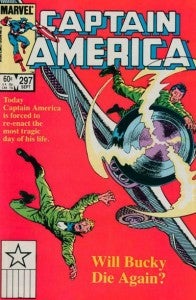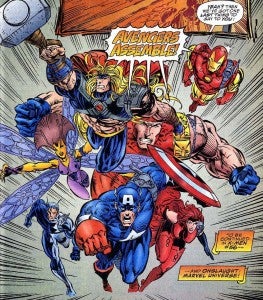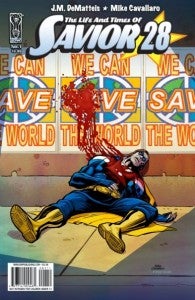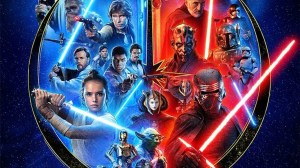How often does Steve Rogers die? Well, maybe not as often as Peter Parker, but it’s not an insignificant number.With the recent revelation that he’ll be dying yet again soon, it seemed like an ideal time to take some stock in it all.Let’s take a stroll down memory lane…!
Videos by ComicBook.com
Back in those ancient days of the early 1980’s—I think it was ’83—I was finishing up a year-long storyline that culminated in the death of the Red Skull. I began to question where Captain America would go from there. What would this man, who’d been waging war, punching faces, dropping buildings on the bad guys’ heads, for (at that time) forty years, do once his primary opponent, a guy he’d been battling since l940, was gone. Knowing Cap—well, my interpretation of Cap—it seemed logical to me that he would have reached a point where he said, “Enough! I’ve been doing this for four decades and it hasn’t made the world a better place or me a better man. Violence is a dead end and I have to chart a new course.” This would also allow me, as a writer, to deal with my ambivalence about the role of violence in super-hero comics, something I’ve always been extremely uncomfortable with. Don’t get me wrong, I love these characters—they resonate on so many wonderful, mythic levels—but most super-hero stories come down to two guys in costumes beating the crap out of each other. Not exactly the most enlightened point-of-view there is. In fact, it’s a fairly stupid and destructive one.I worked up a proposal for a pretty massive arc that would find Cap becoming a global peace activist. (Which would freak out both the government and his fellow super-heroes.) It all culminated in Cap’s assassination at the hands of Jack Monroe, the Bucky of the 1950’s. Now this was a fairly radical idea for its day—but my editor, the late, great Mark Gruenwald, liked it and was willing to go out on a limb with me. Jim Shooter, on the other hand, was totally against it. (As editor-in-chief of the Marvel Universe, and custodian of those characters, he had every right to feel that way. And, looking back, I can understand why a story that questions every super-hero’s reason for being wouldn’t work within the context of that shared universe.) So the idea went down in flames…and I’ve been playing with it—peeling it apart, putting it back together—ever since. Trying to find just the right vehicle for the idea.
For more on that, check out my full 2009 interview with DeMatteis.











